Despite lost revenue associated with stay-at-home orders due to the coronavirus pandemic, La Center’s revenue is up 16 percent from same time last year
LA CENTER — Members of the La Center City Council were briefed Wednesday evening during a virtual work session on that city’s 2020 first quarter finances. At a time when every city in Clark County is dealing with the economic impact of the stay-at-home orders associated with the coronavirus pandemic, La Center’s council members actually were given some good news during the presentation.
“But for COVID-19, in your first quarter, you had a very good performance in terms of revenues,’’ reported Paul Lewis, a consultant to the city who presented the first quarter report.
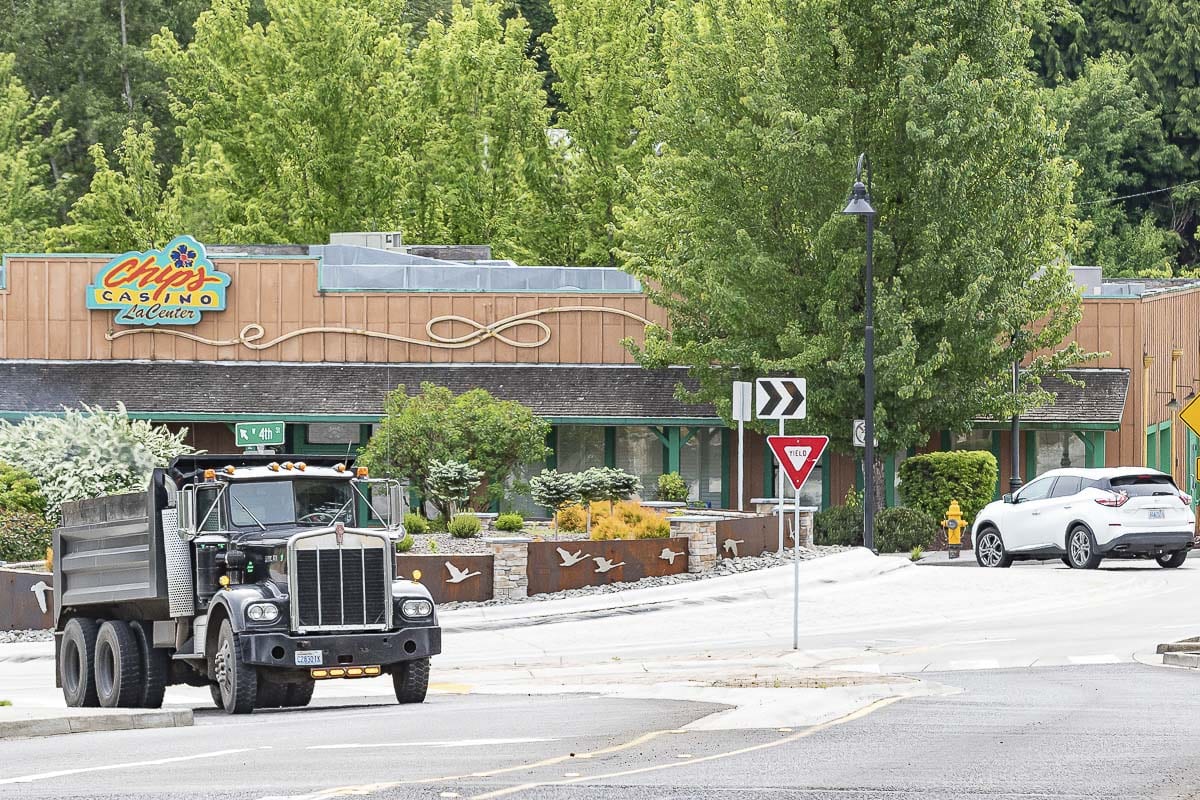
For years, La Center has been heavily reliant on the gambling tax revenue the city receives from its card rooms. Just three years ago, there were four card rooms in La Center that provided more than $3 million in annual revenue to the small city that at last count (2018) had about 3,300 residents.
The two card rooms still operating in La Center, the Last Frontier and Palace casinos, closed temporarily on March 16 and have yet to reopen. La Center’s assumption is that they will be closed for at least three months. With Clark County’s application for a variance to move into Phase 2 of the state’s reopening plan on pause, the three-month assumption appears to be optimistic at this point.
“They expect to reopen, both of them indicated that, within a week or two of when the governor provides them the opportunity to do so,’’ Lewis said during his presentation.
La Center had budgeted $1.3 million in gambling tax revenue from card rooms in 2020. With at least three months of closure, that’s extremely unlikely to happen. In late March, the card rooms requested, and were granted, a tax deferral on about $78,000 in taxes for February activity that were due at the end of March. They have until the end of the year to repay those deferred taxes.
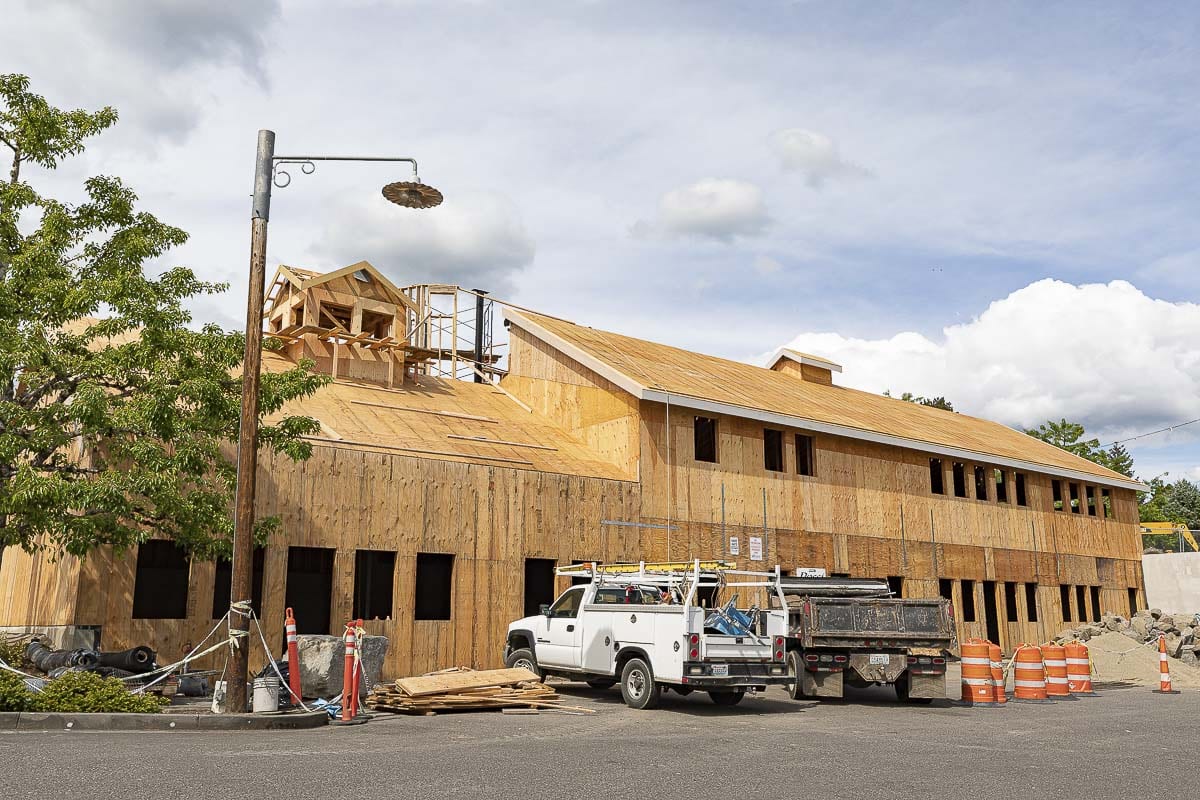
Other revenues increase
Despite the loss of gambling tax revenue in the first quarter, La Center’s General Fund revenue was up almost 16 percent from one year ago, a total of $102,660 over 2019. The increase can largely be attributed to the fact that the city is currently bustling with both residential and commercial construction.
“There was strong single-family permit activity in the first quarter,’’ Lewis told the council members.
That activity led to an increase in revenue from licenses and permits of $116,567 (245 percent) in the first quarter of 2020 from the same quarter in 2019. Retail sales tax revenue was also up 33,104 (41.4 percent).
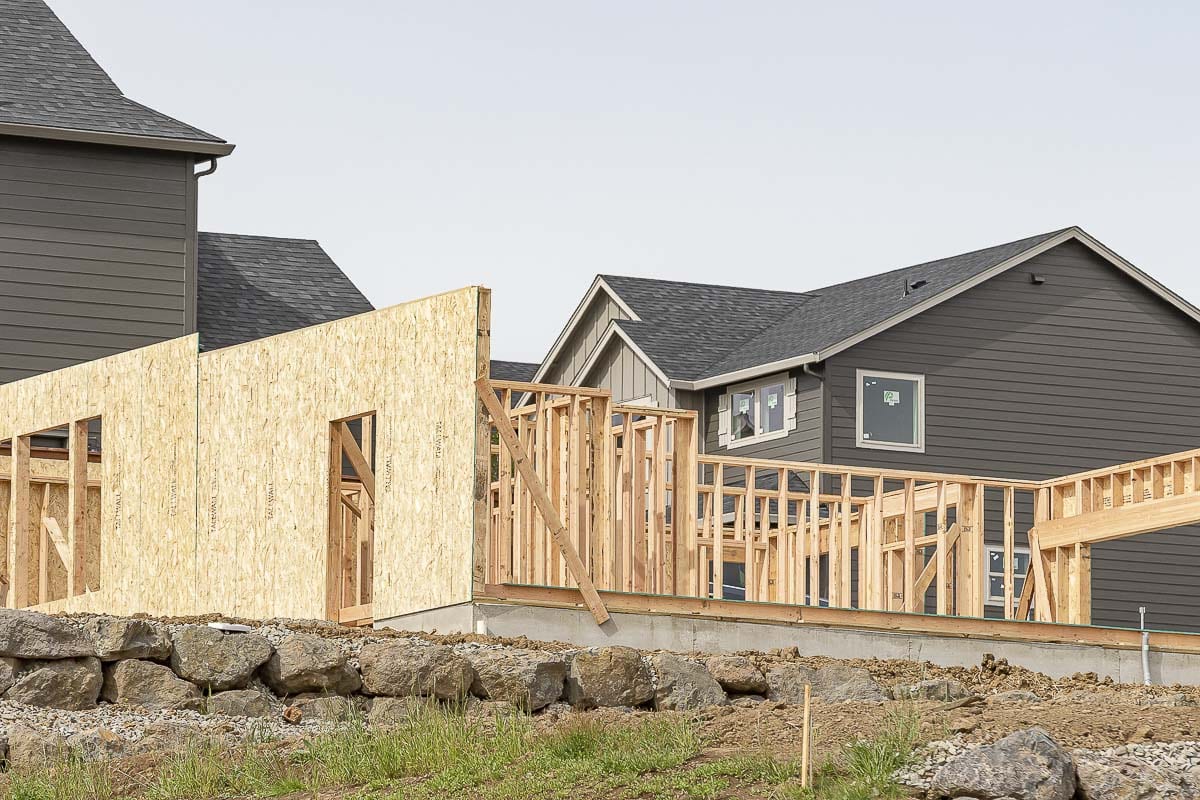
“It’s pretty evident that La Center is experiencing an incredible amount of activity and growth,’’ La Center Mayor Greg Thornton told Clark County Today.
Other highlights included an increase in Real Estate Excise Taxes (REET) revenue in the first quarter from $32,828 (2019 first quarter) to $80,689 in the first quarter this year. The single family home valuation (per permits) in first quarter 2020 was at $13 million compared to $19 million for all of 2019.
“That’s a good sign for the future property tax base,’’ Lewis told the council members.
The city also continues to carry a large reserve fund, which was at $14.6 million at the end of 2019.
Lewis did caution the council members that the report for the second quarter of 2020 will obviously show more impacts from the stay-at-home orders and that it was difficult to project the entire year because of the unknowns associated with the reopening plans around the county and state.
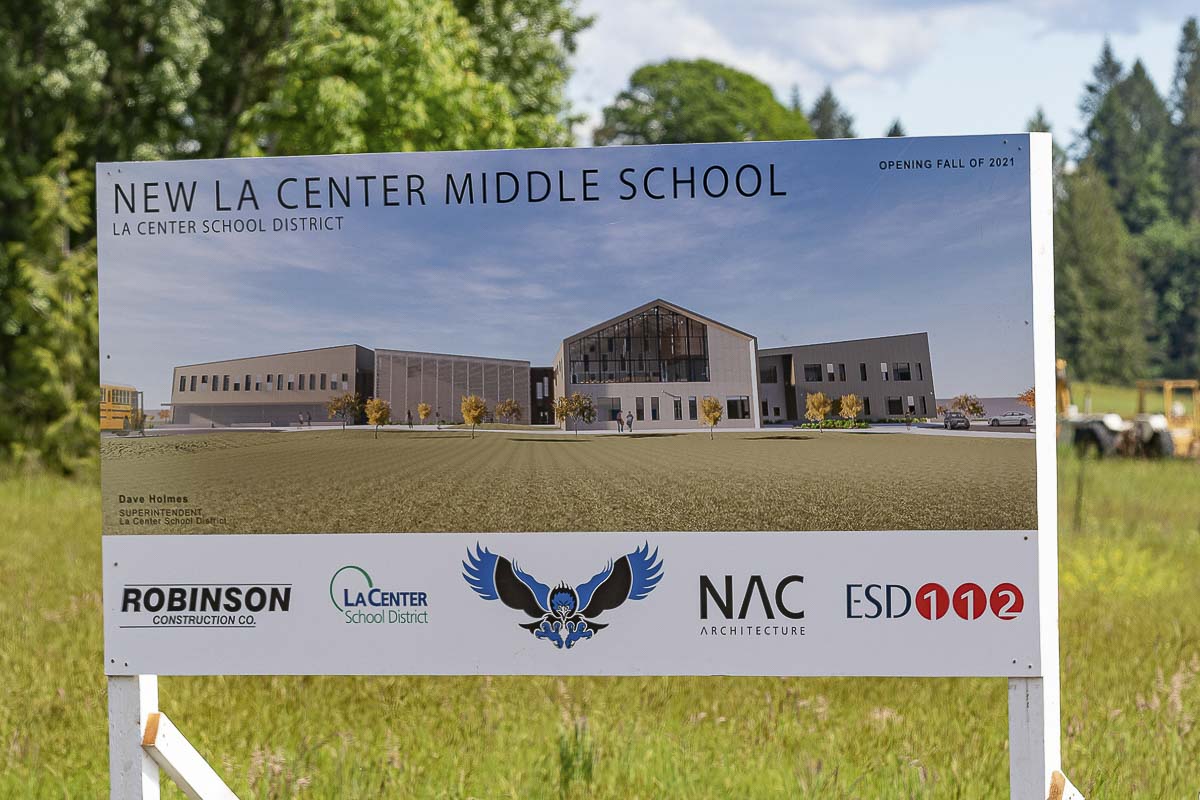
“The COVID-19 pandemic has created a real strain on our local businesses and, specifically, on our card rooms, which continue to contribute a good portion of our revenues,’’ Thornton added.
Long-term development
La Center officials are very aware that the economic impact of the coronavirus pandemic isn’t the only thing they have to deal with. The significant, and continuing loss of gambling tax revenue, which at one time accounted for as much as 75 percent of the city’s revenue, has created what is known as a structural deficit. As a result of that problem, city officials have long attempted to diversify its tax base with more commercial development, with very little success.
On Tuesday, a public hearing was held on the Minit Management Redevelopment Project, proposed at 2814 NW 319th Street, Ridgefield. The project would be at the site of the Shell gas station and market located on the east side of the La Center I-5 interchange.
The proposed project is a phased commercial development that includes a 101-unit, five-story hotel; an 11,600-square-foot, one-story, multi-tenant commercial building; a 4,510-square-foot, one-story convenience store with a drive-thru window; a 2,800-square-foot, one-story, drive-through restaurant; a 12-pump gas station; and associated parking, utility and other infrastructure improvements.
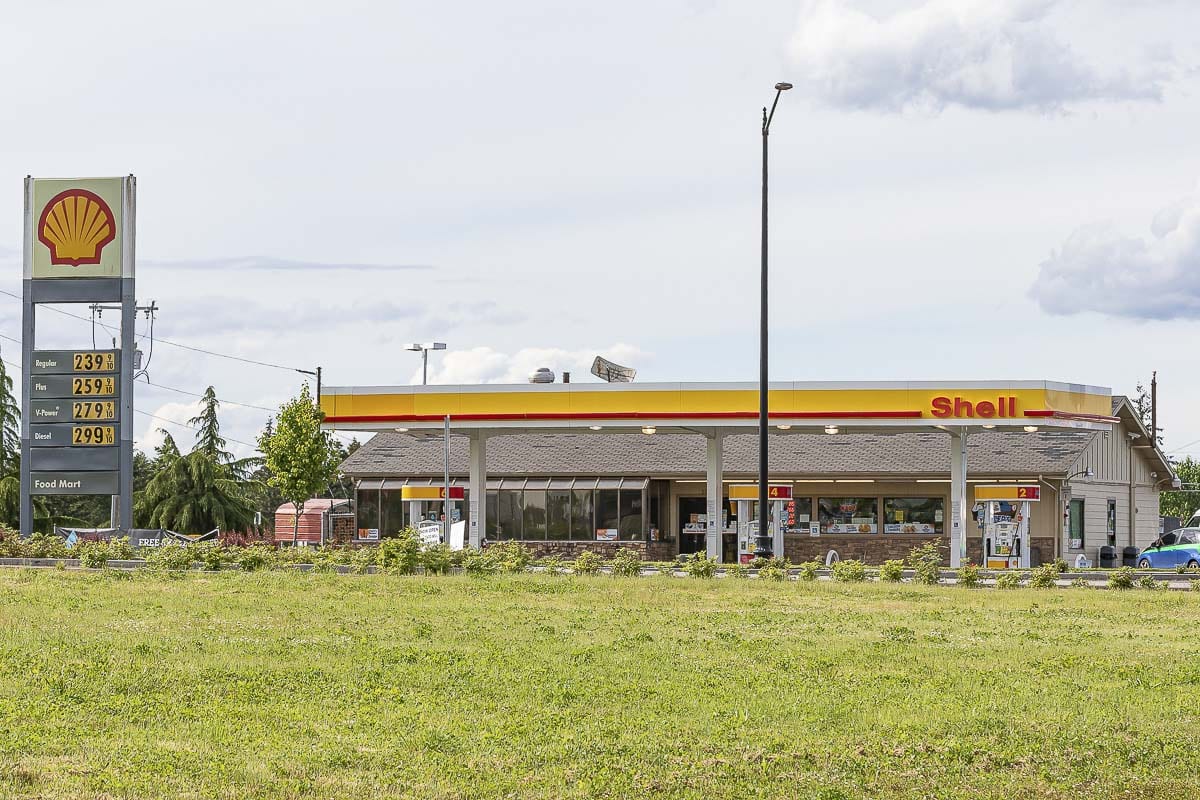
The significance of the project is that it would become the first commercial tenant to hook up to the $4.26-million sewer extension from the city of La Center’s treatment plant and the I-5 junction. The sewer extension was paid for by the Cowlitz Tribe, which in turn signed a Latecomer Agreement with the city to charge properties that connect to the extension in an effort to pay the tribe back for its investment in the sewer extension.
“That development is possible because two years ago, La Center was able to negotiate a sewer line extension from the treatment plant to the La Center junction,’’ Thornton said.
There is also 152 acres near the junction held by private property owners that could be used for commercial development. In the last few years, that acreage was brought into the city’s jurisdictional boundaries and the city is working with those property owners to develop those acres for commerical and mixed-use development. That development would generate tax revenue that could address La Center’s structural deficit.
“It is critical for La Center to have development at the La Center junction to diversify our economy and expand our tax base,’’ Thornton said. “La Center is in a position where we need to do that. This is one development project, working through the final phases to start the project. I can tell you there are other parties interested in developing at the junction as well. I anticipate this just being the first.’’
Thornton pointed out that La Center does have open retail space available in its downtown area.
“We have to focus on our downtown core area and continue to try to develop other areas of the city as well,’’ he said. “Our residential development will continue to give us the population base to encourage more businesses to begin operation here.’’
Residential development
One highlight of La Center’s considerable residential construction activity is the Riverside Estates project. Thornton said it is the first medium-density development in La Center, “which means the homes are being built on smaller lots and it’s also going to have a pretty significant multi-family element that La Center has never had before.’’
The first two phases of the development are expected to move forward into construction later this year, which includes more than 100 new homes. The 144-unit apartment complex is currently in review and not at the building permit stage as of yet.
“All of Clark County is growing; we have a housing shortage,’’ Thornton said. “It’s pretty evident that La Center, as a community, offers a great alternative for people who are looking to buy homes and raise a family in a thriving community that is a great place to live and to raise a family and developers recognize that.’’




